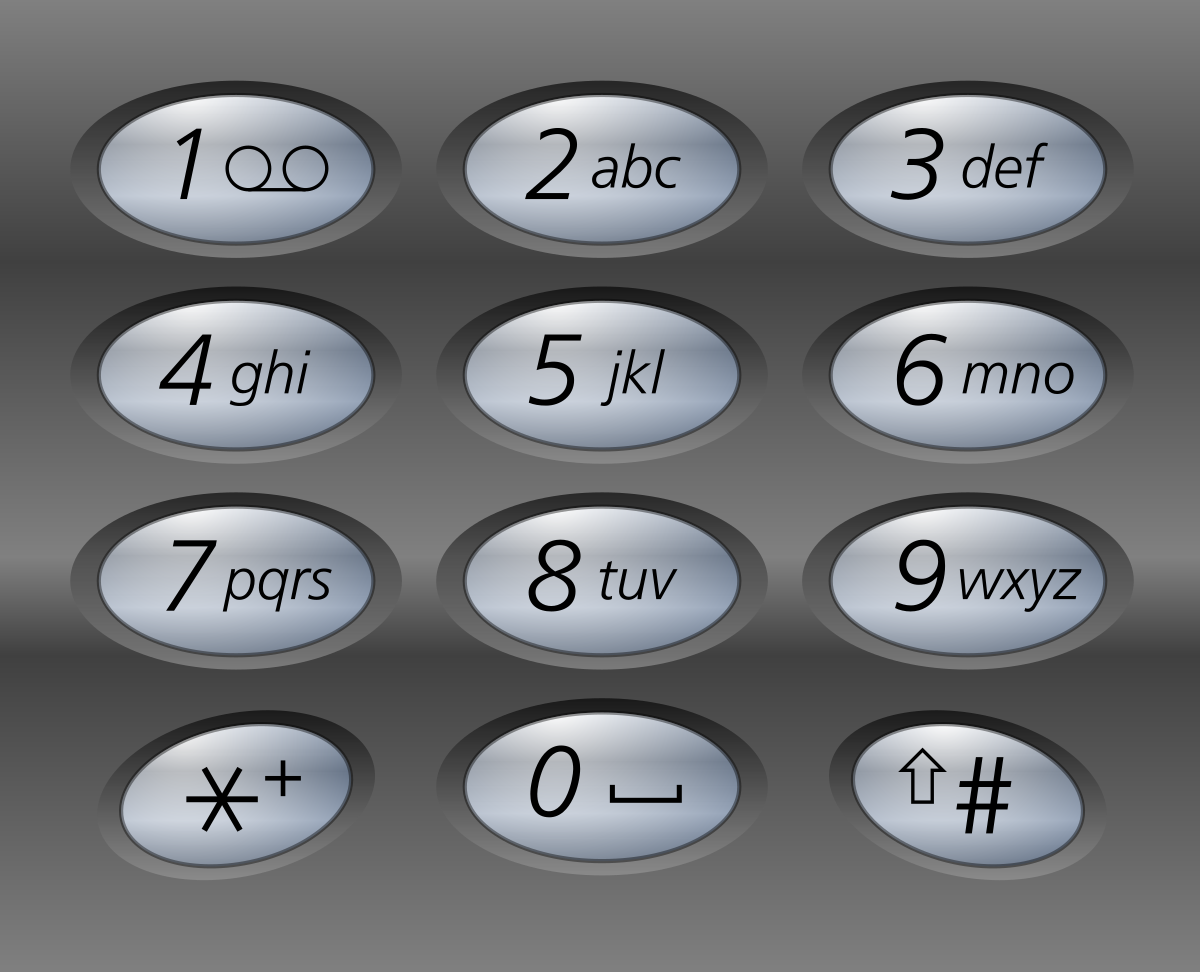Alice 在给 Bob 用手机打字。数字到字母的 对应 如下图所示。
为了 打出 一个字母,Alice 需要 按 对应字母 i 次,i 是该字母在这个按键上所处的位置。
- 比方说,为了按出字母
's',Alice 需要按'7'四次。类似的, Alice 需要按'5'两次得到字母'k'。 - 注意,数字
'0'和'1'不映射到任何字母,所以 Alice 不 使用它们。
但是,由于传输的错误,Bob 没有收到 Alice 打字的字母信息,反而收到了 按键的字符串信息 。
- 比方说,Alice 发出的信息为
"bob",Bob 将收到字符串"2266622"。
给你一个字符串 pressedKeys ,表示 Bob 收到的字符串,请你返回 Alice 总共可能发出多少种文字信息 。
由于答案可能很大,将它对 109 + 7 取余 后返回。
示例 1:
输入:pressedKeys = "22233" 输出:8 解释: Alice 可能发出的文字信息包括: "aaadd", "abdd", "badd", "cdd", "aaae", "abe", "bae" 和 "ce" 。 由于总共有 8 种可能的信息,所以我们返回 8 。
示例 2:
输入:pressedKeys = "222222222222222222222222222222222222" 输出:82876089 解释: 总共有 2082876103 种 Alice 可能发出的文字信息。 由于我们需要将答案对 109 + 7 取余,所以我们返回 2082876103 % (109 + 7) = 82876089 。
提示:
1 <= pressedKeys.length <= 105pressedKeys只包含数字'2'到'9'。
mod = 10**9 + 7
f = [1, 1, 2, 4]
g = [1, 1, 2, 4]
for _ in range(100000):
f.append((f[-1] + f[-2] + f[-3]) % mod)
g.append((g[-1] + g[-2] + g[-3] + g[-4]) % mod)
class Solution:
def countTexts(self, pressedKeys: str) -> int:
ans = 1
for ch, s in groupby(pressedKeys):
m = len(list(s))
ans = ans * (g[m] if ch in "79" else f[m]) % mod
return ansclass Solution {
private static final int N = 100010;
private static final int MOD = (int) 1e9 + 7;
private static long[] f = new long[N];
private static long[] g = new long[N];
static {
f[0] = 1;
f[1] = 1;
f[2] = 2;
f[3] = 4;
g[0] = 1;
g[1] = 1;
g[2] = 2;
g[3] = 4;
for (int i = 4; i < N; ++i) {
f[i] = (f[i - 1] + f[i - 2] + f[i - 3]) % MOD;
g[i] = (g[i - 1] + g[i - 2] + g[i - 3] + g[i - 4]) % MOD;
}
}
public int countTexts(String pressedKeys) {
long ans = 1;
for (int i = 0, n = pressedKeys.length(); i < n; ++i) {
int j = i;
char c = pressedKeys.charAt(i);
for (; j + 1 < n && pressedKeys.charAt(j + 1) == c; ++j)
;
int cnt = j - i + 1;
ans = c == '7' || c == '9' ? ans * g[cnt] : ans * f[cnt];
ans %= MOD;
i = j;
}
return (int) ans;
}
}const mod int = 1e9 + 7
const n int = 1e5 + 10
var f = [n]int{1, 1, 2, 4}
var g = f
func init() {
for i := 4; i < n; i++ {
f[i] = (f[i-1] + f[i-2] + f[i-3]) % mod
g[i] = (g[i-1] + g[i-2] + g[i-3] + g[i-4]) % mod
}
}
func countTexts(pressedKeys string) int {
ans := 1
for i, j, n := 0, 0, len(pressedKeys); i < n; i++ {
c := pressedKeys[i]
j = i
for j+1 < n && pressedKeys[j+1] == c {
j++
}
cnt := j - i + 1
if c == '7' || c == '9' {
ans = ans * g[cnt] % mod
} else {
ans = ans * f[cnt] % mod
}
i = j
}
return ans
}
